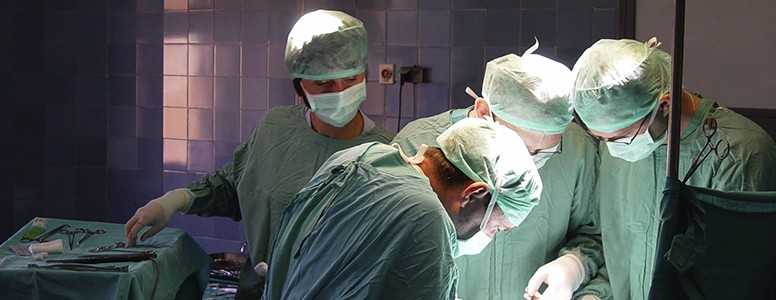Gastric bypass surgery improves the symptoms of diabetic nephropathy, according to new research.
The study, which was conducted by researchers from Imperial College London, compared gastric bypass surgery patients to patients who had been treated without surgery.
Diabetic nephropathy refers to kidney disease caused by diabetes. It is not to be confused with diabetic neuropathy, which affects the nerves. Nephropathy is a common complication, estimated to affect around 40 per cent of people with diabetes.
Gastric bypass surgery is a particular kind of bariatric surgery (or weight loss surgery). The procedure involves dividing the stomach into two different parts: a small upper pouch and a larger lower pouch. The small intestine is rearranged to link both pouches together. Gastric bypass surgery is used to treat people with type 2 diabetes, hypertensio, sleep apnea, and people with a BMI greater than 40.
In the study, the researchers examined the data of 70 patients with type 2 diabetes and obesity undergoing gastric bypass surgery. Their data was compared to that of 25 patients with type 2 diabetes and obesity but no gastric bypass surgery. Whether undergoing surgery or not, all of the participants were treated at the same weight loss surgery centre.
The researchers measured Body Mass Index (BMI), HbA1c levels and blood pressure. They then examined the development of nephropathy, neuropathy, and retinopathy (loss of vision related to diabetes).
Of the patients with retinopathy, the researchers found little difference in improvement or exacerbation between the two groups, suggesting that gastric bypass surgery does not increase retinopathy.
Similarly, there was little difference between the groups regarding the development of peripheral neuropathy.
There was, however, a difference between the two groups in terms of nephropathy: when albumin-to-creatine ratio tests were performed on each group, the surgery participants saw an average improvement of 3.6mg/mmol to 1.7mg/mmol. The non-surgery group saw an increase in nephropathy: 1.8mg/mmol to 3.6mg/mmol.
Although it is not clear why gastric bypass surgery reduced nephropathy symptoms, it is probably linked to the reductions in HbA1c levels, blood pressure, and BMI observed by the researchers.
“It was reassuring to observe that the rates of patients experiencing worsening in retinopathy in the [gastric bypass] group was not in excess to those observed in patients receiving medical care based on
international guidelines,” the researchers wrote.
“The stability of neuropathy after one year was also reassuring.”
This is one of several pieces of recent research that have espoused the benefits of bariatric surgery: a study conducted at the University of Pittsburgh found that 29 per cent of a study group of obese type 2 diabetes patients no longer needed medication after three years.
The research was published in Diabetologia.
What's new on the forum? ⭐️
Get our free newsletters
Stay up to date with the latest news, research and breakthroughs.





